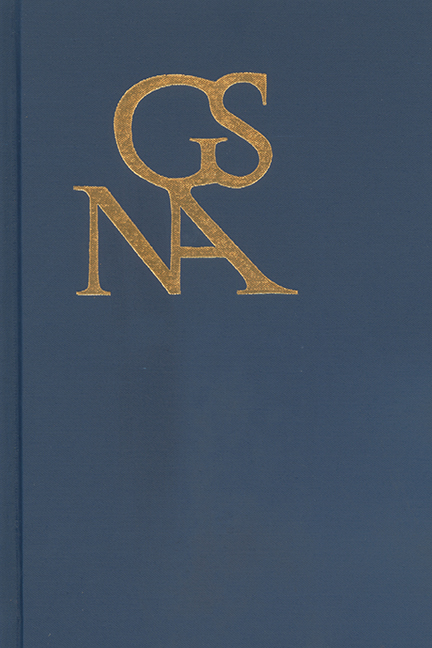Book contents
- Frontmatter
- Contents
- Building Bridges: Goethe's Fairy-Tale Aesthetics
- Goethe as Mystagogue
- Observing Neutrality, circa 1800
- Goethe, Faust, and Motherless Creations
- Impossible Ideals: Reconciling Virginity and Maternity in Goethe's Werther
- Kant, Calculus, Consciousness, and the Mathematical Infinite in Us
- The Classical Aesthetics of Schlegel's Lucinde
- Special Section on Visual Culture in the Goethezeit
- Book Reviews
Impossible Ideals: Reconciling Virginity and Maternity in Goethe's Werther
Published online by Cambridge University Press: 25 February 2017
- Frontmatter
- Contents
- Building Bridges: Goethe's Fairy-Tale Aesthetics
- Goethe as Mystagogue
- Observing Neutrality, circa 1800
- Goethe, Faust, and Motherless Creations
- Impossible Ideals: Reconciling Virginity and Maternity in Goethe's Werther
- Kant, Calculus, Consciousness, and the Mathematical Infinite in Us
- The Classical Aesthetics of Schlegel's Lucinde
- Special Section on Visual Culture in the Goethezeit
- Book Reviews
Summary
IN THE SEPTEMBER 10, 1771, letter of Johann Wolfgang von Goethe's Die Leiden des jungen Werthers (The Sorrows of Young Werther, 1774), Lotte recalls the death of her mother and the heavy responsibility she is assigned in her absence:
Sey ihre Mutter! Ich gab ihr die Hand drauf! Du versprichst viel, meine Tochter, sagte sie, das Herz einer Mutter und das Aug’ einer Mutter. Ich habe oft an deinen dankbaren Thränen gesehen, daß du fühlst, was das sey. Habe es für deine Geschwister, und für deinen Vater: die Treue und den Gehorsam einer Frau. Du wirst ihn trösten.
[“Be a mother to them.”—I gave her my hand.—“Dear daughter,” she said, “what you are promising is a great deal. It is the heart of a mother and the eye of a mother. I could often tell from your grateful tears that you felt what that means. Show a mother's care to your brothers and sisters, and be as faithful and obedient to your father as a wife. You will be a comfort to him.”]
With these deathbed words, Lotte's mother simultaneously secures her replacement in the family and complicates the familial bonds that must be renegotiated in her absence. Lotte, in adopting her mother's caregiving role, reflects a contradictory and complex social ideal of woman as both a maternal and a virginal being, a figure whom I call the “virginal mother.” A young, chaste woman who provides unpaid care for children not her own and simultaneously practices her maternal skills before consummating marriage, the virginal mother marks a departure from the sexualized woman of the seventeenth century and negotiates the eighteenth-century fetishization of virginity with contemporary discourses of domestic motherhood. Rousseau, in particular, was influential in emphasizing the role of maternal nurture in the child's moral development, and it was assumed that a woman's “natural” body predisposed her to this role. In the eighteenth century, this maternal nature is located in the virginal mother, who is charitable and self-sacrificial. She represents an impossible ideal, but one recurring throughout German culture, from Sophie Sternheim in Sophie von La Roche's Geschichte des Fräuleins von Sternheim (The History of Lady Sternheim) in 1771 to Maria in Thea von Harbou's novel and Fritz Lang's film Metropolis in 1927.
- Type
- Chapter
- Information
- Goethe Yearbook 23 , pp. 77 - 94Publisher: Boydell & BrewerPrint publication year: 2016

